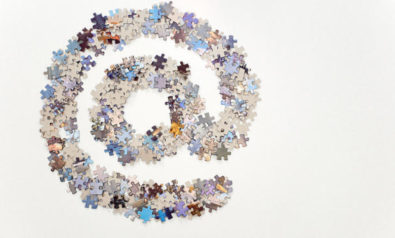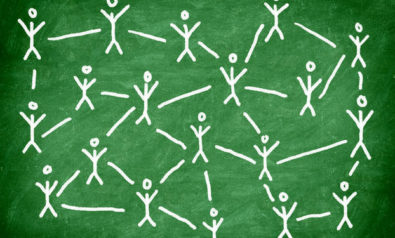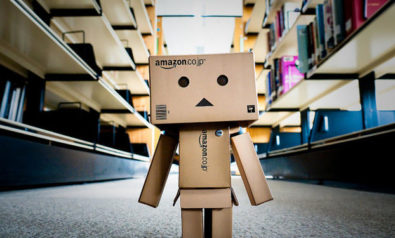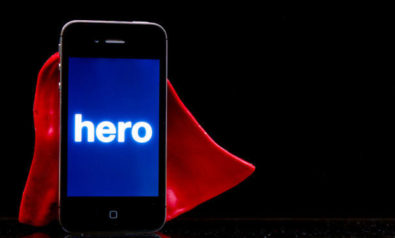How the web has been changing our habits and producing new paradigms regarding social interactions
Background
An episode of the brilliant British TV show “The IT Crowd” suggests that there are endless mysteries surrounding the Internet – eerie, uncanny “corners” yet to be discovered. In a sense, this is not far from the truth, for although the Internet is not contained in a small black box, secretly hidden in Big Ben and well-guarded by the “elders of the Internet”, it is not so easy to identify its origins. One of the few things we can assert with some degree of certainty though is what the trigger of its development was: the Sputnik Shock in 1957. Threatened by the Russian technical progress, USA’s Department of Defense founded the Advanced Research Projects Agency (ARPA). ARPA, later renamed DARPA, would venture the first steps towards what we now call the Internet.
Two ARPA scientists, Joseph Carl Robnett Licklider and Paul Baran, had a vision, one which would change human possibilities. Together they had the idea of a wire netting-like network. In 1969 they were able to send the first text message from one computer to another (at that time only consisting of the letters “lo”, because one of the computers crashed after two transmissions). The idea of the Internet was born, although still pertaining to a closed system composed by a few computers. The former military project carried the potential also to ease civil communication.
Why is this relevant?
The role of the Internet in our daily lives is overwhelming. It has changed both our individual and collective narratives profoundly. But pari passu with this change it has also unveiled how paradoxical our living experience of it can be. On one hand, we are more connected than ever – e-mails, Skype, online shopping, Google maps, stalking your partner from the quietness of your sofa – the world at our feet. On the other hand, we are somehow more and more distant from each other. We are a mouse click away from someone in the other side of the world, though oblivious of the fellow neighbor. The oxymoron extends itself to all aspects of our life: social interaction, music, work, education and language.
Confessions of a Couch Potato
The question is rather pertinent: Why would we ever leave the house again? For social interaction? Well, Facebook and other social media platforms have deeply impacted the way we interact with people. It is no wonder then that our understanding of what friendship is, particularly for the young generations, is utterly alien for their older counterparts. The Internet has brought new layers, new intricate meanings to most of our relationships. We now describe our feelings through emoticons and we simply write “LOL” when we have nothing more to say.
However, this does not mean that we do not go out anymore. We certainly do. We still go to bars, shopping malls, restaurants or parks. But we google them beforehand, we scrutinize every centimeter of what it is, anticipating every possible detail. We have gained the illusion of omniscience, which in some cases can be very useful. Still, we have lost the sense of awe, and of discovery.
So, why should we bother to leave the house at all? For school or work. But the Internet offers us a vast range of information on every topic. All we have to do is type in some words and click search. Within seconds, uncountable information sources pop up. You just have to pick one. Access to information is no longer an issue. Learning how to deal with the sheer mass of information has become one in return. As for work, every office job can be done from every corner in the world thanks to the web and cloud computing services such as Google Drive and Dropbox.
Things have changed at quite a pace. Yet there is a thin line between being connected, with all the advantages it gives us, and outsourcing our lives into the cloud. It starts with our work life and ends with our spare time. We no longer buy our favourite records to preserve them for a lifetime, cherishing them almost as sacred artifacts. No, we stream them off Youtube, Spotify, or simfy, leaving nothing but traces of data gone with a reboot.
Life takes place online, rendering us dependent and addicted to the connection. Wired, attached, virtually consumed. Some of us even despair if we are not able to check our phones, Facebook or emails. Is it even possible to perform a Gedankenexperiment of a world without it? And which paradigm should be taken regarding its evolution and repercussion for the human condition? Ultimately, how deeply has the Internet changed traditional and anthropological concepts which have determined the foundations of our collective narrative?
Image: Copyright © Shutterstock. All Rights Reserved.
For more than 10 years, Fair Observer has been free, fair and independent. No billionaire owns us, no advertisers control us. We are a reader-supported nonprofit. Unlike many other publications, we keep our content free for readers regardless of where they live or whether they can afford to pay. We have no paywalls and no ads.
In the post-truth era of fake news, echo chambers and filter bubbles, we publish a plurality of perspectives from around the world. Anyone can publish with us, but everyone goes through a rigorous editorial process. So, you get fact-checked, well-reasoned content instead of noise.
We publish 2,500+ voices from 90+ countries. We also conduct education and training programs on subjects ranging from digital media and journalism to writing and critical thinking. This doesn’t come cheap. Servers, editors, trainers and web developers cost money.
Please consider supporting us on a regular basis as a recurring donor or a sustaining member.
Support Fair Observer
We rely on your support for our independence, diversity and quality.
Will you support FO’s journalism?
We rely on your support for our independence, diversity and quality.










